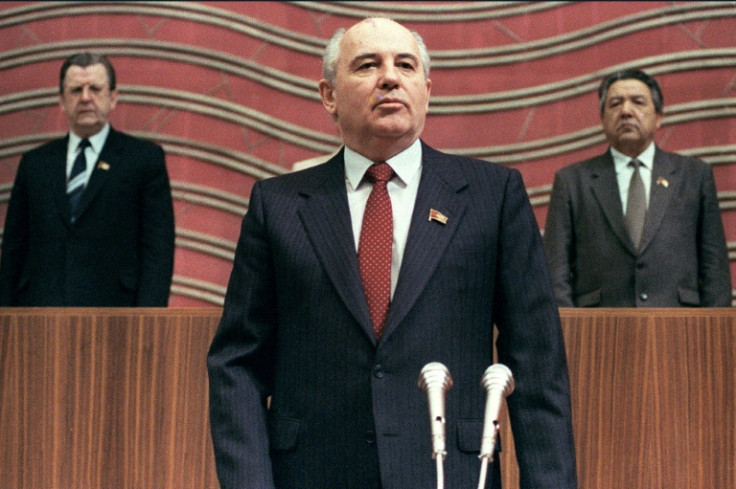World hails 'one-of-a-kind' ex-Soviet leader Gorbachev
World leaders were quick to pay tribute to the man who oversaw the collapse of the USSR, a pivotal turning point in world history.

Mikhail Gorbachev, the last leader of the Soviet Union who played a major role in ending the Cold War, died in Moscow on Tuesday aged 91.
World leaders were quick to pay tribute to the man who oversaw the collapse of the USSR, a pivotal turning point in world history.
Russia's leader Vladimir Putin expressed his "deep sympathies" over Gorbachev's death, Kremlin spokesman Dmitry Peskov told Russian news agencies.
Peskov added that Putin, a former KGB agent who had an ambiguous relationship with Gorbachev, will send a telegram of condolences to the late leader's family and friends on Wednesday morning.
Guterres in a statement praised Gorbachev as "a one-of-a-kind statesman who changed the course of history" and "did more than any other individual to bring about the peaceful end of the Cold War".
European Commission President Ursula von der Leyen hailed Gorbachev as a "trusted and respected leader" who "opened the way for a free Europe".
His "crucial role" in bringing down the Iron Curtain, which symbolised the division of the world into communist and capitalist blocs, and ending the Cold War left a legacy "we will not forget", she wrote on Twitter.
Macron described Gorbachev as a "man of peace" on Twitter early Wednesday, saying he "opened a path of liberty for Russians. His commitment to peace in Europe changed our shared history".
The British leader said he "always admired the courage and integrity" Gorbachev showed to bring the Cold War to a peaceful conclusion.
"In a time of Putin's aggression in Ukraine, his tireless commitment to opening up Soviet society remains an example to us all," he said in a Twitter post, referring to Moscow's offensive in its former Soviet neighbour.
© Copyright AFP 2025. All rights reserved.





















